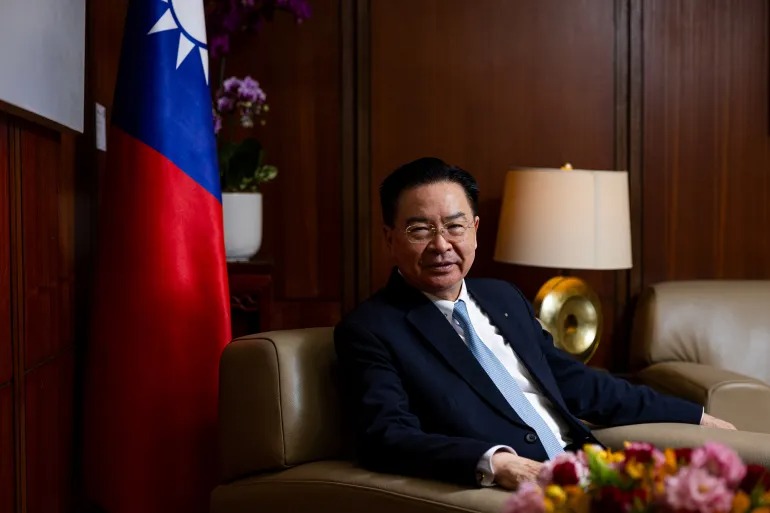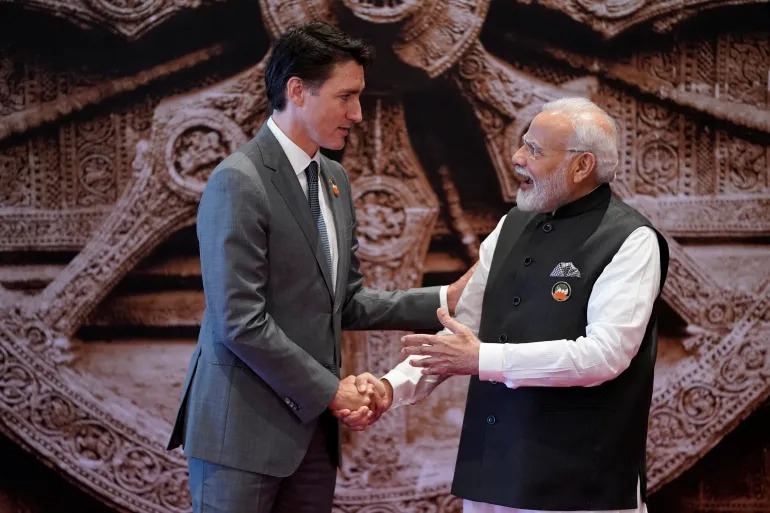As Taiwan gears up for its upcoming presidential elections in January, the island nation’s outgoing Foreign Minister, Joseph Wu, has sounded a stern warning about the “constant threat” posed by China. Wu, a member of the ruling Democratic Progressive Party (DPP), has expressed concerns over Beijing’s ambitions and its potential to interfere in the election process. He highlighted the importance of vigilance against misinformation campaigns and discussed the challenges faced by the DPP in appealing to younger voters.
Taiwan’s Democratic Progress Party Faces Youthful Challenge
Wu acknowledged the shifting preferences among Taiwan’s young voters. Traditionally, the DPP has been popular among the youth, but the emergence of third-party candidate Ko Wen-je has posed a challenge. Wu attributed the DPP’s initial appeal to young voters to events like the Sunflower Movement in 2014 and the Hong Kong protests in 2019-2020. These events had inspired young people to see the DPP as the defender of Taiwan’s freedom. However, Wu also recognized that younger voters tend to favor unconventional candidates, making Ko Wen-je a prominent figure in the current election cycle. Nevertheless, he pointed out that more mature young voters are now educating their peers about the complexities of the presidential election, which may result in a shift away from Ko Wen-je and the Taiwan People’s Party.
China’s Increasing Antagonism and Election Interference
Wu acknowledged that China’s interference in Taiwan’s elections tends to backfire, citing previous instances of military exercises coinciding with elections. While he did not expect major military actions, he cautioned against underestimating China’s central decision-making system and the potential for miscalculation by President Xi Jinping. Beyond military threats, Wu highlighted China’s use of economic coercion and hybrid warfare tactics, such as infiltrating Taiwanese society through media manipulation. He cited an example of how the Chinese had pushed Russian narratives during the Ukraine conflict, which eroded Taiwanese trust in the United States. Wu stressed the importance of international awareness regarding these threats and the need for a unified response.
Geo-Strategic Significance and Economic Impact
Joseph Wu underscored Taiwan’s geo-strategic importance, situated in the First Island Chain and along major international trade routes. He also emphasized Taiwan’s role as a semiconductor hub, with a significant share of global semiconductor production. Drawing parallels with the war in Ukraine, Wu warned that a Chinese invasion of Taiwan would have far-reaching economic consequences worldwide, including food crises, energy shortages, and inflation. To deter China from resorting to force, Wu emphasized the need for Taiwan to adopt a rational and moderate policy while ensuring advanced military capabilities.
As Taiwan prepares for its crucial presidential elections, the interview with Foreign Minister Joseph Wu provides valuable insights into the challenges faced by the island nation. Wu’s candid assessment of China’s threats, evolving voter dynamics, and the global significance of Taiwan’s security underscores the complexities of the situation. The international community, including allies like Japan and emerging partners in Eastern Europe, will be closely watching the election’s outcome and its potential impact on regional stability. As tensions continue to simmer in the Taiwan Strait, diplomatic efforts and strategic cooperation remain essential to preserving the island’s democratic values and safeguarding its economic contributions on the global stage.
















